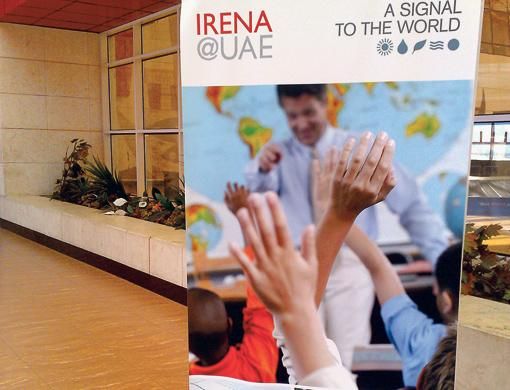Gulf News' Abbas Al Lawati is in Sharm Al Shaikh as the decision on which country will be the headquarters of the International Renewable Energy Agency (Irena) is made. Read his daily diary by bookmarking this page.
Day two: Sunday, June 28
As delegates from different countries stream in to Sharm Al Shaikh for a vote on Irena's seat, it is perhaps important to ask how much carbon they are willing to emit flying down here in an effort to secure the future of clean energy.
The UAE's 45 people-strong delegation here has travelled on both commercial flights and private planes. According to my calculations, that is an emission of approximately 51,000 pounds of CO2.
The German delegation, which has sent 40 officials consisting of the environment minister Sigmar Gabriel, other environment officials and a logistics team, has emitted close to 80,000 pounds of CO2 assuming the entire delegation has flown on commercial planes.
I asked a German official about the irony and she laughed, "All this for a vote".
African states have sent delegations of two to four people. "A big delegation," said an official from Niger, whose country has been involved in solar energy projects since 1965.
But if this tells us anything, it is that the drive for an increase in the use of renewable energy comes primarily from pragmatic considerations.
Whether environmental conservation is the primary factor or not is not important because it is a win-win situation for the environment either way.
The official from Niger said that African states are being financially drained from energy imports. While states like Niger are keen to introduce renewable energy projects, they might have to wait until the cost of the technology drops, he said.
According to Hermann Scheer, dubbed as the brains behind Irena, oil producing states are finally starting to realise that traditional sources of energy are going to run out, and that renewable energy is the only viable option for them, "especially states in the Arabian Peninsula, which can make more use of solar energy than other states".
Day one: Saturday, June 27
The Germans are tense and the Emiratis are confident, but not crossing their fingers just yet. With only two days to go until an estimated 114 countries decide where the headquarters of the International Renewable Energy Agency, or Irena, will be, delegates from neither side are willing to say whether they have a good chance. What delegates from both sides are saying here in Sharm Al Sheikh, however, is that the other side stands a good chance to host the body.
Support seems to be split between Bonn and Abu Dhabi, and from what I've seen here, the Germans are uneasy with the amount of unexpected support the UAE is getting. An official from the German embassy in Cairo that I spoke to shrugged when I asked her if she thought Germany had a good chance of winning. She then shook her head and said, "I really don't know."
I overheard another German delegate nervously complain about how tense she was, not having a clear picture on what the vote outcome would be. The Emirati delegation is not letting that get to its head just yet. A delegate I spoke to from the UAE Foreign Ministry said lobbying will go on until the last second. Asked if he was relying on assurances from states, the delegate shrugged, "It's a secret ballot. They can tell us one thing and do something else. We can't be sure."
The amount of lobbying the UAE has done has, however, been eye-opening. I spoke to delegates from both Benin and Niger, and while both seemed to lean towards the UAE, they wouldn't say who they would vote for. More importantly, both said that a UAE delegation had paid each of their countries a visit. "And the Germans? Did they come?" I asked. "No," they both said. The Germans' nervousness largely comes from their former confidence that their rock-solid record on renewable energy would speak for itself. Not the case, it appears. "The UAE is offering a lot," said the German delegate.
Irena diary - day two: How much carbon to vote?
Day two: How much carbon does it take for delegates to make vote?













